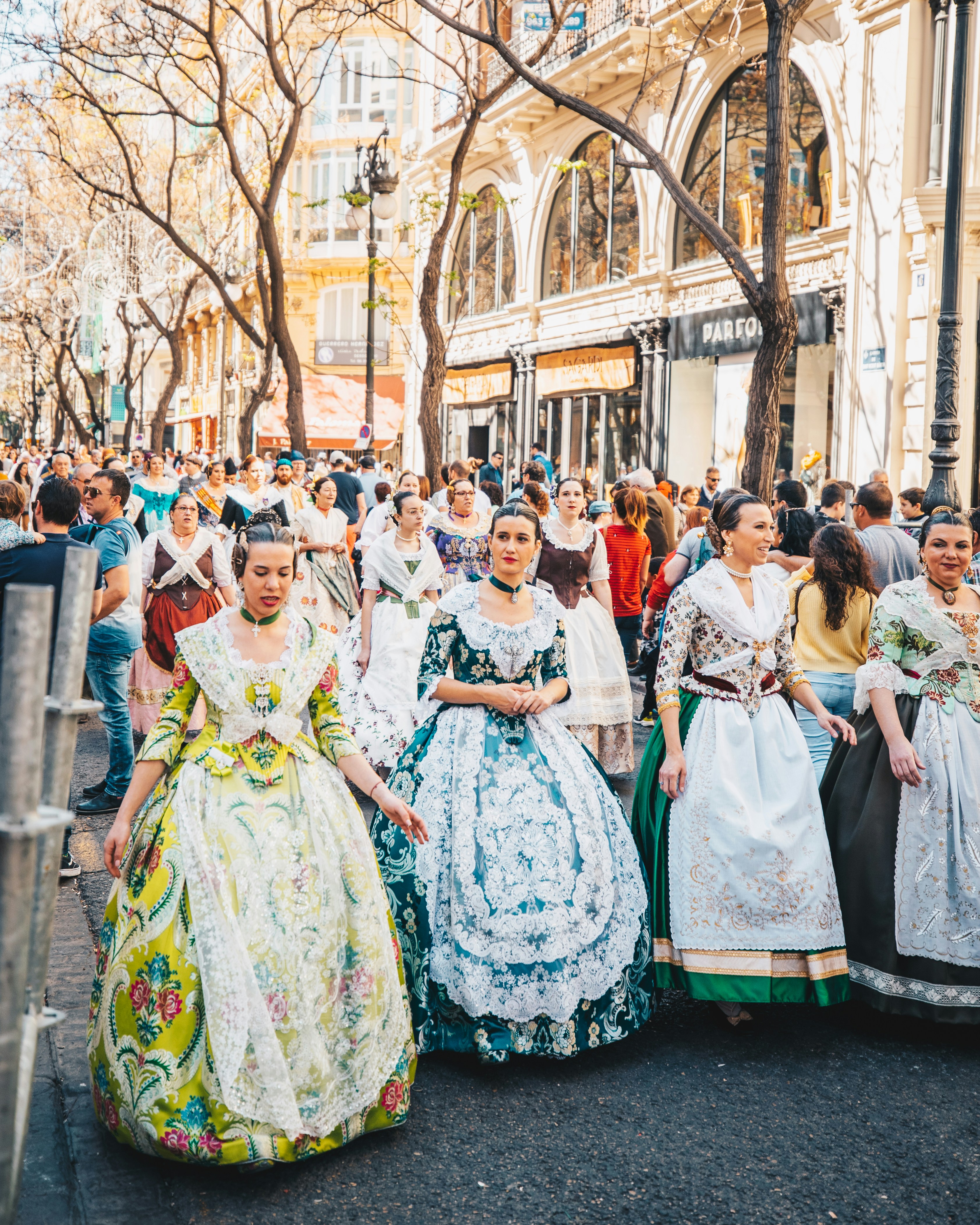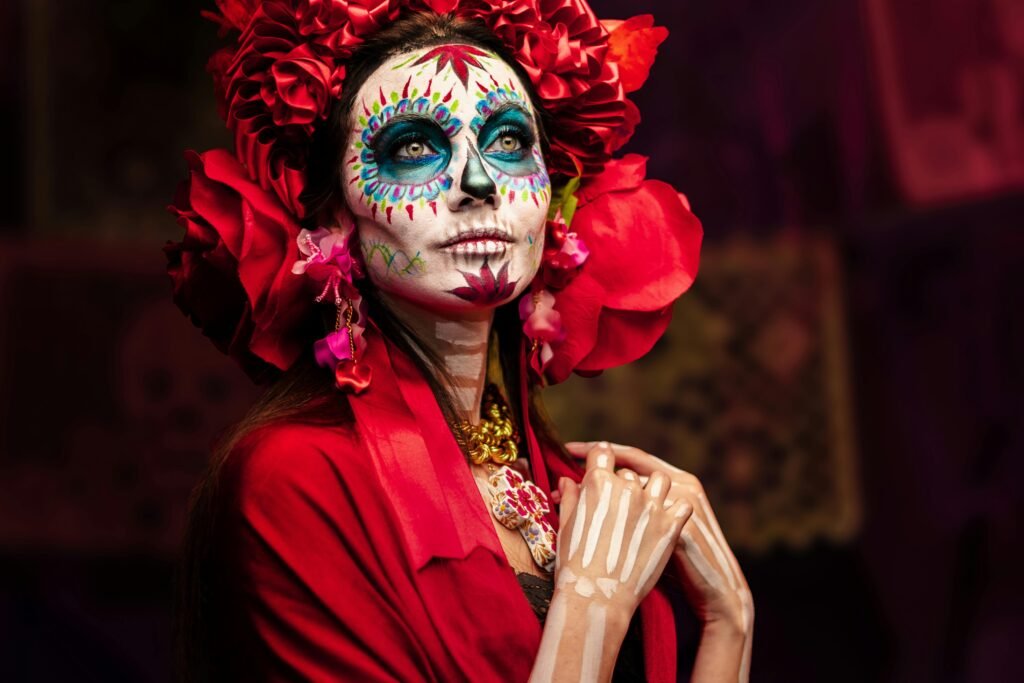Introduction to Cultural Travel
Cultural travel represents a unique opportunity for individuals to delve into the rich tapestries of societies across the globe. It is not merely about visiting popular tourist spots; rather, cultural travel invites travelers to engage deeply with destinations that are steeped in history and traditions while appreciating their modern advancements. This form of travel embodies the essence of exploring how cultures evolve over time, balancing age-old customs with contemporary influences.

The appeal of cultural travel has surged in recent years, as modern travelers seek more than just leisure-oriented experiences. They yearn for depth, understanding, and an open-minded connection to the world around them. These travelers are driven by an intrinsic desire to immerse themselves in the local culture, which often leads to a more profound appreciation of diverse traditions, beliefs, and lifestyles. Cultural immersion allows individuals to engage with local communities, participate in traditional practices, and appreciate the narratives that shape their identities.
By embracing cultural travel, travelers not only enhance their own experiences but also contribute to the preservation and appreciation of these rich traditions. The interaction between visitors and locals fosters mutual respect and understanding, which is particularly vital in an increasingly globalized world. Furthermore, destinations that embrace cultural tourism can benefit economically by promoting their heritage while supporting sustainable practices that protect their unique identity.
Overall, cultural travel serves as a bridge connecting the past and present, illuminating how history influences contemporary life. Exploring these destinations offers invaluable insights that cultivate empathy and open-mindedness, ultimately reminding us that each culture has its unique story to tell. By engaging deeply with such traditions while acknowledging modernity, travelers can embark on a transformative journey that enriches their lives and broadens their perspectives.
Understanding the Intersection of Tradition and Modernity
The coexistence of tradition and modernity is a fascinating subject, particularly in cultural travel. Many destinations around the world have succeeded in integrating their rich historical practices and rituals with contemporary lifestyles and innovations. This dynamic interaction not only preserves age-old customs but also leads to the creation of unique experiences, allowing visitors to immerse themselves in the past while engaging with the present. Such a blend enriches the cultural fabric of these places, creating a narrative that encourages exploration and understanding.
For instance, cities like Kyoto in Japan exemplify this intersection beautifully. Here, traditional tea ceremonies and ancient temples coexist alongside modern architecture and technology. Visitors can witness the delicate nature of Japanese traditions, such as kimono-wearing and calligraphy, while also enjoying the conveniences of contemporary urban life. This blending provides a profound insight into how cultures evolve yet retain key characteristics of their identity.

Similarly, cities in Europe, such as Prague or Rome, showcase centuries-old traditions through their festivals, culinary practices, and daily rituals, all functioning harmoniously within modern settings. This juxtaposition often creates vibrant atmospheres where the past is celebrated within the framework of today’s lifestyle. The presence of artisanal markets alongside trendy boutiques illustrates how traditional crafts are embraced in a way that appeals to contemporary sensibilities.
The interaction between tradition and modernity not only enhances travel experiences but also allows for the promotion of cultural sustainability. By valuing and adapting historical practices in modern contexts, destinations can foster a community that honors its heritage while welcoming innovation. Travelers seeking authentic cultural experiences will find that destinations that skillfully navigate this intersection offer an enriched understanding of their journey, illuminating the resilience and adaptability of cultural identities over time.
Top Destinations for Cultural Travel
Cultural travel allows individuals to immerse themselves in the heritage, traditions, and modern interpretations of various societies around the globe. Among the myriad of destinations offering cultural richness combined with contemporary appeal, several stand out.
Japan holds a unique position in cultural tourism, seamlessly blending ancient traditions with cutting-edge modernity. Cities like Kyoto are renowned for their temples, traditional tea houses, and serene gardens. Simultaneously, the vibrant urban scene of Tokyo, featuring towering skyscrapers, unique fashion districts, and high-tech experiences such as robot restaurants, reflects Japan’s innovative spirit. The juxtaposition of historical landmarks and futuristic technology makes Japan an unparalleled destination for cultural exploration.
Italy is another exemplary country where rich cultural heritage comes alive. Renowned for its art, architecture, and culinary delights, cities such as Florence and Rome draw visitors to their historical significance. The Uffizi Gallery in Florence showcases masterpieces by Renaissance artists, while the Colosseum in Rome stands as a monumental reminder of ancient civilization. Contemporary art and design are also flourishing in cities like Milan, making Italy a blend of history and modern creativity.
Another noteworthy location is India, which offers an extraordinary tapestry of cultures, languages, and traditions. The Taj Mahal in Agra epitomizes the historical grandeur, while festivals like Diwali and Holi showcase the vibrancy of its cultural life. In contrast, contemporary hubs like Bangalore and Mumbai exemplify the nation’s rapid modernization with their thriving tech industries and cosmopolitan lifestyles.
Lastly, South Africa has emerged as a fascinating cultural travel destination, with its diverse traditions and histories. Cape Town, with its iconic Table Mountain, is rich in cultural landmarks, while the vibrant arts scene and contemporary society reflect the country’s dynamic spirit. Engaging with local communities and their practices adds depth to the travel experience.
These destinations exemplify how cultural travel can enhance understanding and appreciation of our world’s rich traditions and modern advancements.
Experiencing Local Traditions: Festivals and Celebrations
Cultural travel offers a unique opportunity to engage with the local traditions of the destinations we explore. Festivals and celebrations serve as vibrant displays of cultural heritage, allowing travelers to experience firsthand the customs, rituals, and communal spirit of different communities around the world. These events not only showcase deep-rooted traditions but also provide a platform for modern interpretations and inclusivity, inviting participation from visitors.
Take, for instance, the renowned Diwali festival in India, often referred to as the “Festival of Lights.” This celebration marks the triumph of light over darkness, and tourists can witness elaborate decorations, vibrant fireworks, and communal prayers. Visitors are often welcomed to partake in the festivities, from decorating their homes with diyas (lamps) to joining in the joyous feasts, thus creating a deep connection to the local culture. Similarly, the Rio Carnival in Brazil brings an explosion of color and rhythm, blending traditional samba music with contemporary choreography, allowing travelers to immerse themselves in both the heritage and evolution of Brazilian culture.
Other notable examples include the Oktoberfest in Germany, where the resurgence of traditional Bavarian heritage is experienced through local brews, music, and gastronomy. This festival not only attracts tourists but also fosters a sense of community among participants from various cultural backgrounds, promoting inclusivity. Additionally, the Chinese New Year celebrations around the globe highlight vibrant parades and traditional rituals, inviting travelers to join in age-old customs while experiencing modern iterations of this beloved festival.

Overall, engaging with local festivals and celebrations can significantly enhance cultural travel experiences. By participating in these rich customs, travelers gain deeper insights into the traditions that shape a community’s identity, fostering appreciation, respect, and understanding of diverse cultures. These interactions illustrate how both old traditions and contemporary expressions coexist, creating a dynamic tapestry of cultural richness that enriches the travel experience.
The Role of Cuisine in Cultural Exploration
Cuisine plays a pivotal role in cultural exploration, serving as a vital gateway to understanding a destination’s rich heritage. Remarkably, traditional dishes often carry stories, reflecting the historical influences and agricultural practices of the region. For instance, an array of spices and flavors found in Indian cuisine can illustrate the country’s trade history and diverse cultural influences. Similarly, the technique of fermentation in Korean cuisine not only enhances flavor but also showcases the importance of preservation methods unique to its climatic conditions.
Cooking techniques, passed down through generations, offer insights into a community’s way of life. From the slow cooking of Moroccan tagines to the quick stir-fry methods of Chinese cuisine, each approach provides a glimpse into the time-honored practices that define a culture. Modern culinary trends, such as fusion cuisines, further highlight how global influences shape local dishes, signifying the adaptability and evolution of culinary arts in today’s interconnected world.
Culinary tours and workshops have emerged as effective mediums for travelers to engage directly with the local culture. Taking part in cooking classes allows individuals to grasp not only the intricacies of preparing regional specialties but also broader social norms, seasonal ingredients, and traditional dining etiquette. Moreover, dining experiences in local establishments enable travelers to appreciate the ambiance and communal aspects of cuisine, promoting connections with residents and fostering deeper cultural appreciation. These interactions bring forth a more nuanced understanding of how food encapsulates a culture’s essence.
Through the exploration of culinary traditions and innovations, travelers can forge authentic connections with their destinations, enriching their travel experiences. Each meal serves as a testament to the local history, ingredients, and innovative spirit, illustrating even further the integral role of cuisine in cultural exploration.
Art and Architecture: Bridging Past and Present
Art and architecture serve as powerful narrators of a destination’s cultural narrative, embodying both historical legacies and contemporary perspectives. By exploring significant art movements and architectural styles, travelers can gain a deeper appreciation for the heritage and innovation that coexist within urban landscapes. Each structure, public artwork, and artistic movement often reflects the societal values and historical contexts of its time, illustrating the dynamic interplay between tradition and modernity.
For instance, the Gothic cathedrals of Europe showcase the intricate craftsmanship and devotion of medieval artisans. Their towering spires and luminous stained glass windows invite awe, manifesting a transcendental glory while echoing the spiritual aspirations of the age. In contrast, the contemporary architectural marvels, such as the Burj Khalifa in Dubai or the Sydney Opera House, represent cutting-edge design and innovation. These structures not only address modern functionality but also embody the ambitions and creative visions of today’s societal context.
Moreover, art movements such as Impressionism or Cubism have significantly influenced how public and private spaces express cultural identity. Cities like Paris or Barcelona are adorned with museums, galleries, and street art that bridge the traditional with the avant-garde. The urban environment often becomes a canvas for local artists to resonate with cultural themes while engaging locals and tourists alike. Through these artistic expressions, visitors can more fully grasp the evolution of these destinations as living entities, reflecting past influences while embracing contemporary trends.
In this journey of discovery, travelers are encouraged to explore various neighborhoods, engage with local artists, and familiarize themselves with the architectural nuances that characterize each locale. As a result, they will deepen their understanding of a destination’s cultural identity—an invaluable aspect of cultural travel that fosters respect and appreciation for diverse histories and modern interpretations.
Meeting the Locals: A Cultural Exchange
Engaging with local residents is a cornerstone of cultural travel, offering travelers a unique opportunity to gain insight into the rich traditions and contemporary life of a destination. By fostering connections with locals, travelers can experience a deeper understanding of cultural nuances that are often overlooked in traditional tourist experiences. It is essential to approach these interactions with an open mind and a genuine willingness to learn, ensuring that the experience is mutually enriching.
One practical way to connect with locals is through community-based tourism initiatives, which promote direct engagement with residents. This can include participating in workshops or local festivals, where travelers can learn traditional crafts or culinary techniques directly from community members. Such activities not only provide a hands-on experience but also allow travelers to appreciate the cultural heritage and contemporary practices of the destination.
Another approach is to consider volunteering opportunities, where travelers can contribute to community projects while immersing themselves in the local way of life. This could involve environmental conservation efforts, educational programs, or social initiatives that directly benefit the community. By investing time and effort into these endeavors, travelers foster meaningful relationships with locals and make a positive impact, enriching their own travel experience.
Conversations with locals can also be facilitated by utilizing platforms focused on cultural exchange, allowing travelers to network with residents eager to share their culture. These interactions are fundamental to bridging cultural gaps, offering insights into daily life, customs, and values. By showing respect and curiosity about local traditions, travelers can cultivate genuine friendships that enhance their journey. Ultimately, meeting locals is vital for a comprehensive cultural experience, paving the way for personal growth and a renewed perspective on global interconnectedness.
Sustainable Practices in Cultural Travel
Sustainable practices in cultural travel have come to the forefront as travelers increasingly seek to engage in responsible tourism. As the awareness of environmental and cultural preservation grows, tourists are encouraged to support local traditions while minimizing their negative impact on the communities they visit. This shift towards sustainable practices not only enhances the travel experience but also fosters a deeper appreciation for the places explored.
One essential component of sustainable cultural travel is making eco-friendly travel choices. This can range from selecting environmentally conscious accommodations to opting for carbon-neutral transportation methods. By supporting establishments that prioritize sustainability, tourists can contribute to the preservation of local ecosystems and minimize their carbon footprint. Additionally, traveling during off-peak seasons can further alleviate the strain on destinations, allowing for a more authentic experience that benefits both travelers and local communities.
Ethical tourism also plays a crucial role in sustainable practices. Engaging in activities that promote cultural exchange and respect for the local way of life is fundamental. This can be achieved by participating in community-led tours, supporting local artisans, and consuming traditional cuisine in locally-owned restaurants. By prioritizing these experiences, travelers can ensure that their presence positively impacts the economy and cultural heritage of their chosen destinations.
Moreover, as travelers explore various cultures, it is imperative to show respect for local customs and traditions. Learning about the history and significance of a destination before visiting can greatly enhance one’s understanding and appreciation of the local culture. This awareness not only enriches the travel experience but also demonstrates a commitment to preserving the integrity of cultural heritage.
In conclusion, embracing sustainable practices in cultural travel allows individuals to explore destinations thoughtfully and respectfully. By making informed choices, travelers can enjoy immersive experiences while supporting the rich traditions and modern initiatives of the communities they visit.
Conclusion: The Future of Cultural Travel
Cultural travel plays a significant role in fostering global understanding and empathy, allowing individuals to connect with the essence of different societies. As we navigate an increasingly interconnected world, the importance of cultural tourism is becoming more pronounced. Through cultural exchanges, travelers gain a deeper appreciation for the traditions, customs, and lifestyles of others, which in turn promotes respect and tolerance across diverse populations.
Emerging trends in cultural tourism highlight the necessity for destinations to strike a balance between honoring their rich heritage and embracing modernity. Travelers are now seeking experiences that not only showcase authentic cultural practices but also reflect contemporary ways of life. This evolving mindset encourages local communities to adapt and innovate, ensuring that their unique identities are maintained while also catering to visitor interests. It is essential for destinations to cultivate this delicate equilibrium, which can be achieved through responsible tourism practices that prioritize sustainability and community involvement.
As cultural tourism continues to evolve, future travelers are encouraged to embark on their own unique journeys. By doing so, individuals will not only broaden their perspectives but also contribute to the preservation of cultural heritage. Engaging with local traditions, participating in workshops, or simply spending time with residents can provide a richer understanding of a place and its people. It is through these meaningful interactions that travelers become ambassadors of culture, sharing their experiences upon returning home. Ultimately, the future of cultural travel lies in our ability to embrace both tradition and modern living, fostering relationships that transcend borders and create a more empathetic world.



